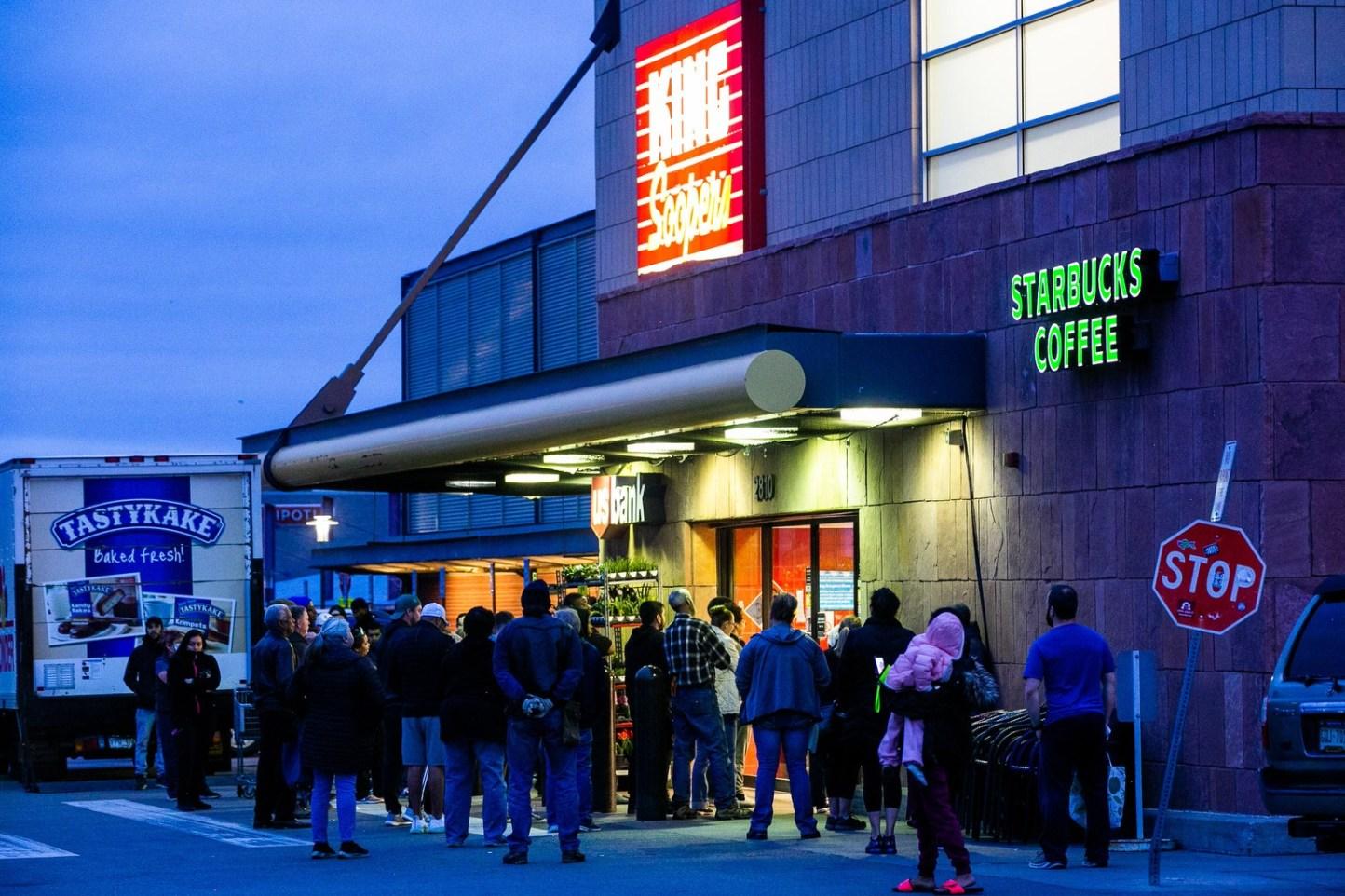By Paul Albani-Burgio
Randy Narvaez was a dedicated manager for King Soopers, but at least two of the employees he once worked alongside at the customer service desk won't remember him as their former boss. Instead, they will think of him as "OG."
"We used to call him [that]," said a former coworker of Narvaez's who worked with him at the King Soopers store on 13th and Speer in Denver and asked to remain anonymous for this story. "He wasn't like a boss. He kind of played with us and talked with us and we even ate together. He was real cool."
Narvaez's old coworker described him as a man with "a teddy bear-type attitude" who loved the Broncos. Many commenters who left messages on Narvaez's Facebook page after his death from COVID-19 seemed to agree.
"Randy, you were one of the ones that made a difference," wrote one.
"Randy was a gentle giant. Always smiling and laughing," said another.
Narvaez, who passed away on Sunday, is the second King Soopers employee to die of COVID-19 in Colorado.
A third employee, James Mckay, has since died, according to the union representing King Soopers employees.
There have been 11 cases of COVID-19 among staff members at the store where he had been working, which is located at 9th Avenue and Downing Street in Capitol Hill. The company said there have been at least two deep cleans of the store.
Narvaez's old coworker at the Speer store said she had recently heard him express the concern that Kroger, which owns Kings Soopers, was allowing too many customers at once into the Capitol Hill store.
"Me and him talked through Facebook, and he was upset about how many people were coming into the store," she said. "He was just like 'this is ridiculous.'"
Narvaez's old coworker, who now works at a different King Soopers in the Denver area, said that while her store has been pretty good about providing employees with masks, gloves and other supplies, she shares Narvaez's concerns about the number of people allowed in the store at once.
Jessica Trowbridge, a corporate affairs manager for King Soopers, said one of many changes the grocery store chain has implemented since the onset of the COVID-19 pandemic has been to lower the capacity limits of each store by 50 percent to one person for every 120 feet of store space. Each location has also installed plexiglass partitions and decals on the floors that encourage social distancing.
Narvaez's old coworker said while she believes her store is sticking to those new capacity limits, the number of people still allowed into the store makes her feel uneasy.
"It feels like too much to me," the coworker said. "And a lot of people don't want to wear masks."
Trowbridge said that while King Soopers does not have a policy in place requiring customers to wear face coverings at stores, the company is complying with all local orders.
In Denver, that means adhering to Mayor Michael Hancock's rule requiring all people over the age of three to wear coverings in public places. Under the order, grocery stores must take all reasonable steps to remind customers to wear face coverings and keep those who are not wearing them from entering.
"We have signage up in stores, we have overhead announcements reminding customers to wear their facial coverings," said Trowbridge. "Additionally, our team is making sure to engage with customers who enter the facility to remind them that there is an ordinance in place and that for their safety and the safety of others, we request that they wear a face covering."
Narvaez's old coworker estimates that about 50 percent of customers arrive wearing masks, and she and other employees feel comfortable telling customers they need to wear a mask or they won't help them.
However, she says she has friends who work at other stores in the region where they feel the policy isn't being enforced enough.
Despite her concerns about crowding at her own store and mask enforcement at others, she says King Soopers is making an effort to do right by employees through efforts like regularly disinfecting surfaces.
"I think they really try but they're not trying hard enough," she said. "Just recently we got our hero pay taken away from us."
Trowbridge said Kroger recently made the decision to stop paying employees the extra $2 per hour hero pay because stores were returning to "a more normal pace of operation" and King Soopers has also hired more than 6,000 additional associates in recent weeks to take the pressure off. However, King Soopers will now be paying bonuses of $400 for full-time workers and $200 for part-time workers.
"We continue to evaluate the way that we are recognizing our associates for the great work that they are doing," Trowbridge said. "So to acknowledge our associates, we provided appreciation pay and have now followed up with a thank you bonus to acknowledge when they were doing so much more than their job. As our business begins to return to normal and the global pandemic continues to evolve, we continue to evaluate our associates' needs."
But Narvaez's old coworker said she thinks the company should continue the hero pay in addition to the bonuses.
"It's still not enough because we're struggling," the coworker said. "A lot of us are struggling bad. One of my daughters is getting unemployment and people on unemployment are making more than we get just working our butts off."
Narvaez's union, UFCW Local 7, is planning a memorial service for Sunday, May 31, in which a parade of cars will drive around the Capitol Hill store.
This story has been updated to include the latest number of employees at the King Soopers store in Cap Hill who have died.
Colorado Matters interviewed Narvaez's coworker. Listen to the conversation below.














